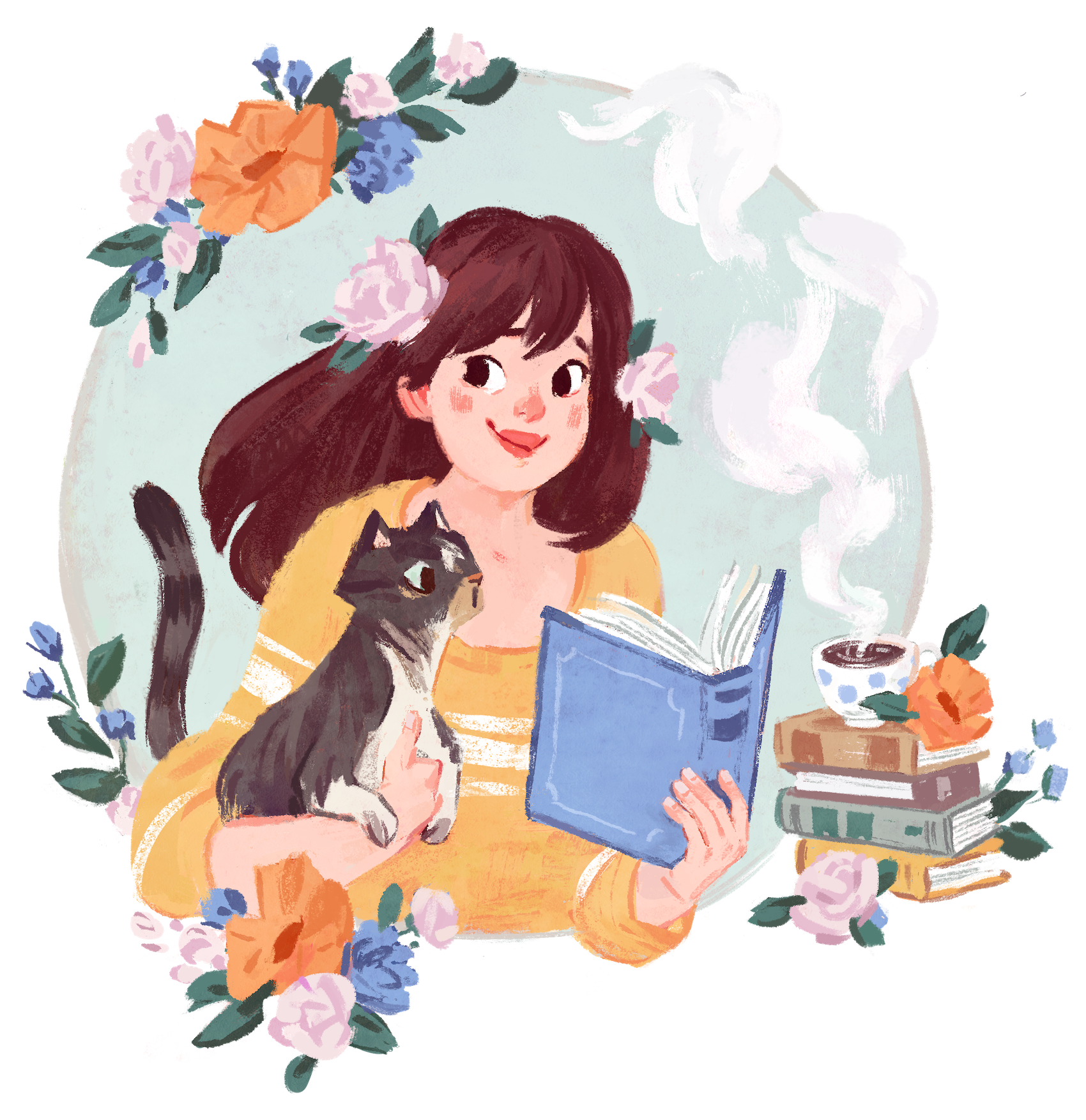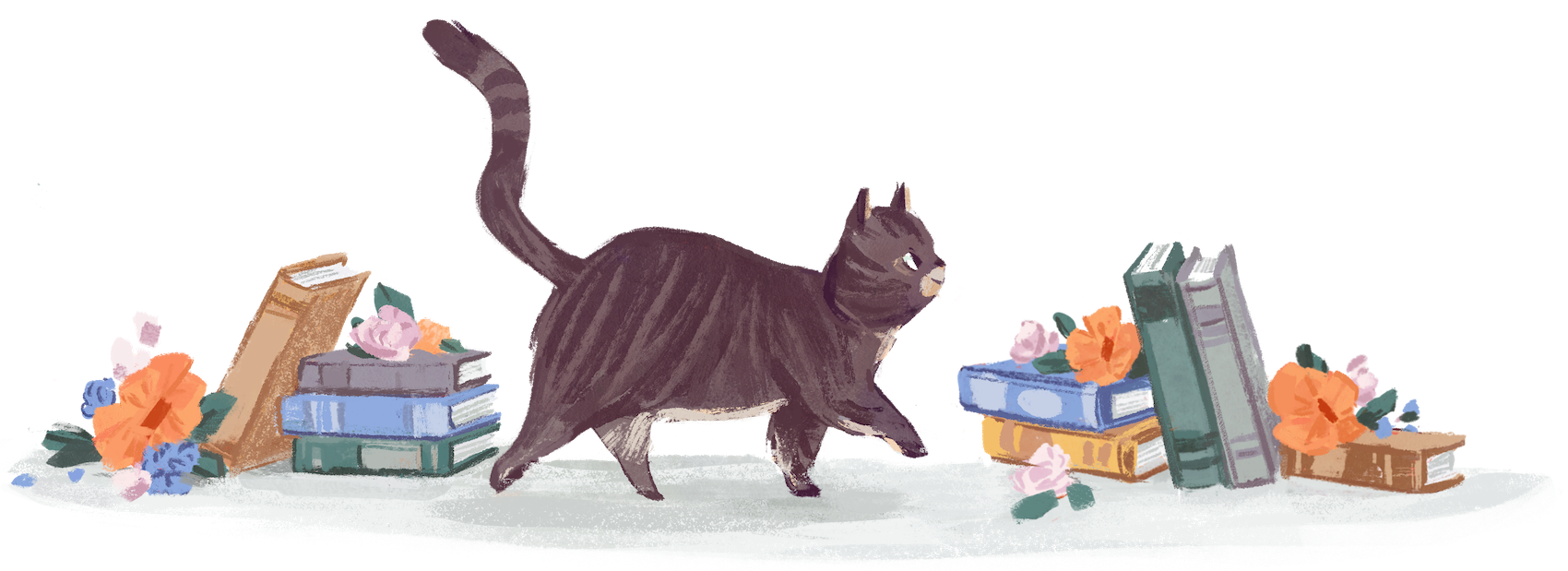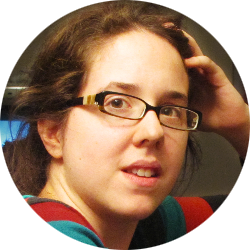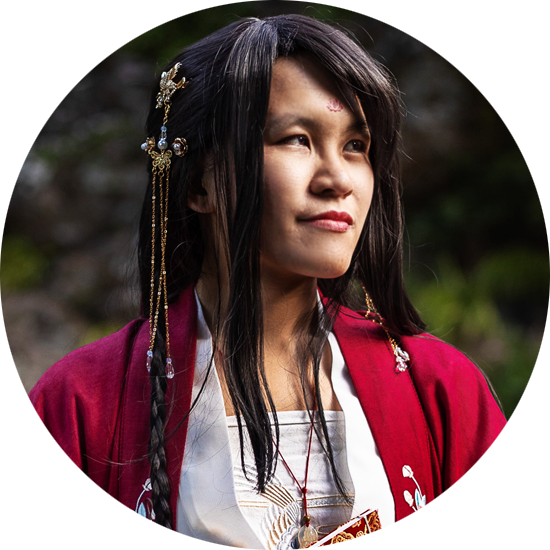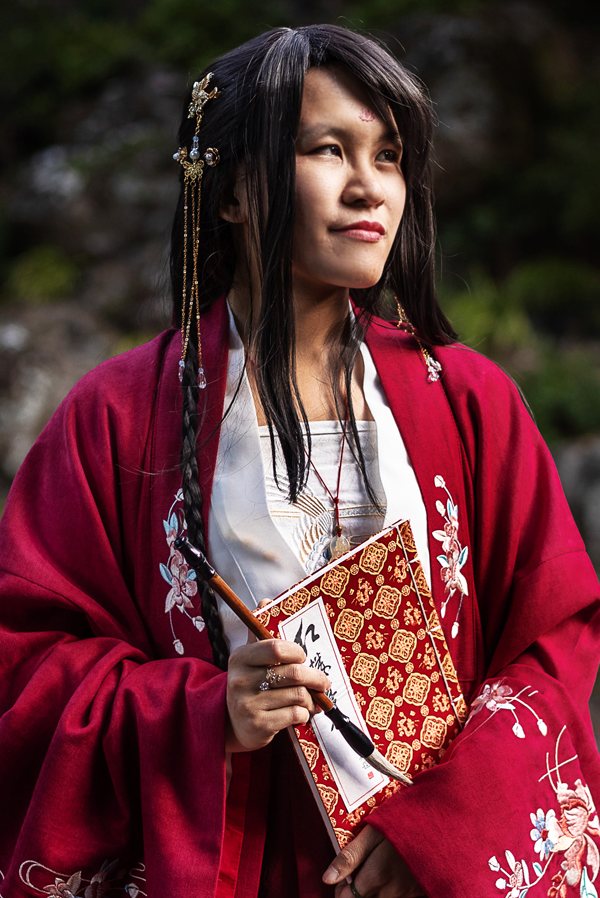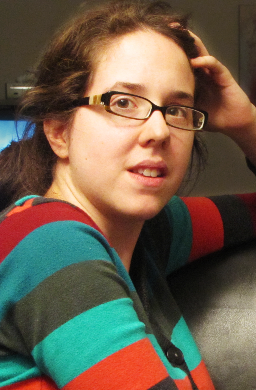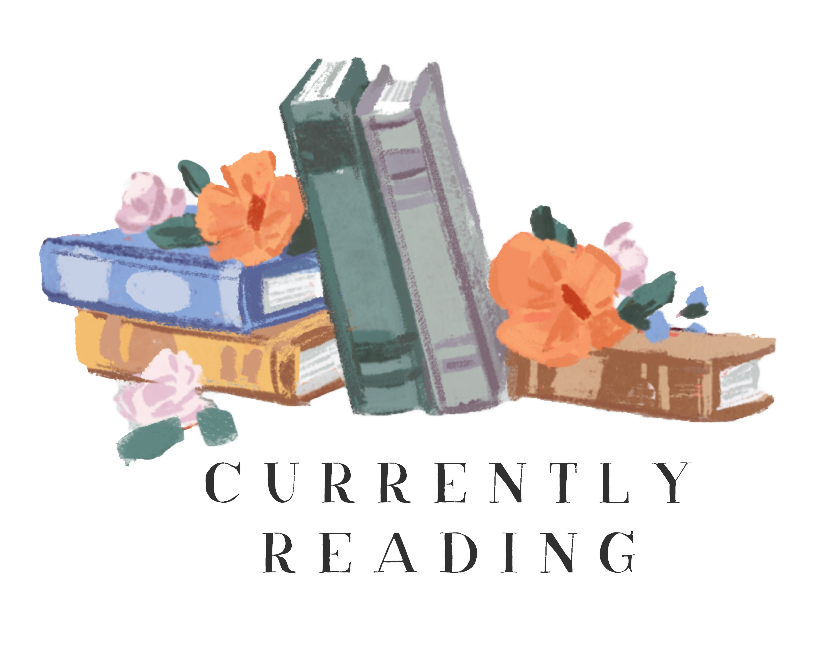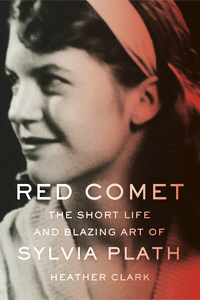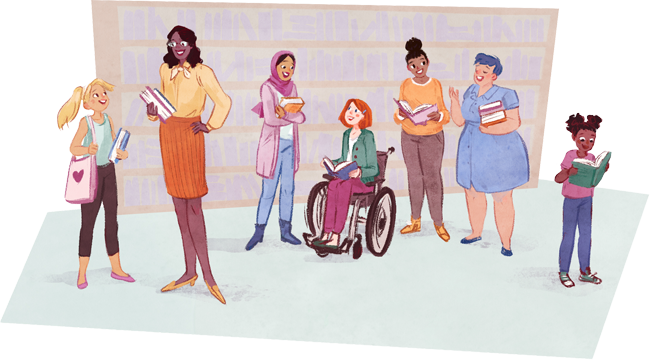
Hi everyone! Today on Pop! Goes The Reader I feel fortunate to welcome authors Rosiee Thor, Laura Pohl, Nicole Kornher-Stace, Claudie Arseneault and Michelle Kan to the blog as they share a thoughtful discussion panel in honour of Aromantic Spectrum Awareness Week!
Rosiee: Every year for Aromantic Awareness Week, I always try to take part in the ongoing conversation about this identity label for people like me who experience little to no aromantic attraction. It’s such a varied experience and representation can take so many forms, all of them important and validating in their own ways.
This year, for reasons I think we can all relate to, I was feeling pretty isolated and lonely, so in addition to my usual participation in this week long event, I wanted to chat with some other aromantic authors about aromantic fiction, writing while aromantic, and the grand platonic agenda. Today, I’m joined by the wonderful Claudie Arsenault, Michelle Kan, Nicole Korhnher-Stace, and Laura Pohl.
Thank you so much for joining me today for this aromantic-spectrum roundtable! I’m excited to chat with you all about aro representation, writing while aro-spec, and the future of aromantic fiction. To start us off, could you each introduce yourselves and tell us a little about what you write?
Claudie: Hey hey all, I’m a self-publishing author of queer fantasy, and I tend to focus all my stories on platonic relationships and community. I have two main series right now — Isandor, a big city fantasy with a mosaic of queer characters navigating deadly politics and an even deadlier wizard, and Baker Thief, a Quebec-inspired enemies-to-queerplatonic novel with an aro bigender MC.
Laura: Hi everyone! I’m Laura Pohl, you may know me as the author of The Last 8 and The Grimrose Girls, both which feature aromantic main characters, and I’m super excited to be on this roundtable. My main interest in writing is speculative fiction, so aliens, magic, vampires – pretty much anything goes for me.
Nicole: Hey, I’m Nicole! I’m an aroace author of aggressively zero-romance books that center friendships and QPRs instead. My Archivist Wasp trilogy (Archivist Wasp, Latchkey, as-yet-unnamed third book that’s a work-in-progress on my Patreon) is about a far-future postapocalyptic ghosthunter priestess, the ghost of a near-future genetically engineered supersoldier, their Unlikely Alliance enemies-to-besties quest into the underworld, and everything that comes after. My most recent adult novel, Firebreak, is an anticorporate SF thriller about an aroace near-future gig economy worker/videogame streamer who gets way in over her head because of platonic friendcrush loyalty. It gets comped to Ready Player One a lot, but it’s really more like if a big splashy action movie had a baby with a Rage Against The Machine album. Super stoked to be here!
Michelle: Kia ora koutou katoa! I’m Michelle and I’m an independent filmmaker/videographer, artist and writer in Aotearoa New Zealand. I’m a self-published author of speculative fiction and love to write complex non-romantic relationships, and the variety of dynamics that fall within those boundaries. My first novel, No More Heroes, is an action/adventure urban fantasy about superpowers and friendship power, inspired by my love for movement disciplines (such as parkour, martial arts and circus) as well as mystery stories, action films, video games and electronic music. Meanwhile, my anthology series Tales of the Thread is a very gentle collection of loosely connected original fairytales, each taking place in a different setting inspired by classical Chinese mythology and folklore.
Rosiee: It’s great to have you all today! I’d love to kick things off by asking about your experiences as readers – who was your first aromantic character in fiction? What was it like to see your experience reflected in a book?
Claudie: I don’t remember which came first, but it was either Scylla in Lyssa Chiavari’s Fourth World, or Mab in A Word and A Bullet by Rachel Sharp. Those were the first to say aromantic, at any rate; I’d definitely ran into a few aroace characters before then, but the focus was always on ace. I don’t know who was my first aromantic main character that actively discussed their identity, to be honest, and while I’ve found lots of cool aro characters with overlap, I don’t think I’d call any of them a reflection of my own experiences. But I exist in a wibbly wobbly space of grayro, and those don’t make it to books a lot.
Laura: I honestly think it might have been your book, Rosiee! Ha, ha. I think that question specifically always makes me think too hard. Being authors, we always read a lot, so obviously it’s even harder to remember all the details, but even then, aromantic characters are still very scarce in fiction, at least using labels. I do agree with Claudie that it’s hard to boil down to an experience that reflects my own, since there is a whole spectrum that encompasses aromanticism, so the specifics never have matched with my own story. Guess that’s why I’m still writing all the aro characters to explore that gap.
Michelle: This is kind of a tricky question for me for a couple reasons, one being which I’ve been reading almost every character ever as aromantic (and asexual) by default, loooooong before my A-piphany or learning that those terms even existed. So the answer of “my” first aromantic character depends entirely on whether you mean my intention or the author’s!
But it’s also a tricky question because “who was your first [canon] aro character” and “what was it like to see yourself represented” are two completely different questions for me. The wide spectrum of aromantic experiences aside, most portrayals of queerness and queer characters at the moment are presented through an overwhelmingly White lens, and that goes for aromanticism too. As a result, even if a character is canonically aro (or more specifically to me, arospec), the most I can say is “oh, same” but often I don’t really feel any significant kinship beyond that thought. Honestly, the most represented I have felt is in Jonathan Stroud’s MG series Lockwood & Co. – Lucy isn’t even canonically arospec, but her growing fondness and admiration for Lockwood perfectly mirrors my own arospec experiences in (ironically) crushes and developing attractions. Not to mention, sexual attraction isn’t even brought into the picture at all since it’s a middle grade novel, so hell yeah tbh.
Nicole: I absolutely love questions like this because invariably they add sweet reads to my TBR. I’m maybe an outlier here in that I don’t think I saw any aromantic characters in fiction before I started writing my own – and that I did this back in 2012 or so when I really wasn’t online much at all and didn’t even know that aromanticism (or asexuality for that matter) was a thing that had a name. Both labels applied to me, but I just kinda chalked it up to my being Weird.
What I remember most is really gravitating toward m/f character pairings that were super intimate without hinting at romance, and thinking yes, that is what I want to write. My earliest most formative example of this is probably not even in a book, but the minor characters Vasquez and Drake in the movie Aliens. I was blown away to see that kind of ride-or-die camaraderie written between a male/female character pairing, and at age 12 it scratched an itch that baby-aro me didn’t even know I had. If they’ve been canonically written as a romantic couple elsewhere in the property, I simply do not want to know about it.
Claudie: Nicole brings up a good point. I wonder how many of us were writing aro characters before we had words for it? Some of my characters in City of Spires existed long before I did, and when I looked back at them I was just “oh”.
Michelle: Oh, I definitely know I did, haha. Even No More Heroes in all its Power-Of-Friendship glory was written prior to my formally encountering the terms aromantic or asexual. Not to mention every short story I ever wrote focused (almost aggressively) on non-romantic m/f friendships.
Nicole: I’m so happy for kids growing up today with the vocabulary for these things. I was so confused for such a long time I can’t even tell you. I wrote an essay about it for last aceweek (HOW was that half a year ago??) because the juxtaposition between 90s/early 00s awareness and now is just. A lot. We’re not just weirdos anymore! There are words for it! That’s exciting!
Laura: It truly is!!! Although my dream of representation is to find an aro character who I do not identify with at all. That’s when we’ll know the representation has branched out enough and diversified enough to include multiple experiences from multiple points of views.
Michelle: I mean, I could probably settle for at least one (1) aro character I can identify with for a start, hahaha. But yes absolutely, it’s really nice to know that aromanticism and asexuality and even the split attraction model are concepts that we now have to hold onto, especially for the newer gen! I thankfully never had the experience of thinking I was ‘broken’, but I was very confused with how often my schoolmates would be in and out of relationships. Like Nicole, I just thought I was maybe a lil Weird, maybe my standards were just high or something, but that didn’t come up until my late teens. Actually, I’d decided as a thirteen year old that I was “never going to be in a relationship or even think about boys until uni or after”, so that suited my aims perfectly well, hahahahaha.
Claudie: I’ve vastly stopped looking for the “identify with” part with regards to characters. Sometimes I recognize a specific experience, but that’s where it stops? I do hope you find yours, Michelle. These days I pick up aro books to see them question and shatter our understanding of relationships.
Rosiee: I love that – shattering our understanding of relationships is such a different, but very important, goal from the blanket “representation” that so often discussed. But you’re right – stories have the power to do a lot more than just reflect our experiences back; they can reshape the way we look at the world and relationships! In that vein, I’m curious about what inspired you to write about aromantic characters? What has it been like to write aro-affirming books as an aro-spec author?
Laura: I want to say something inspiring but honestly, for me it’s just fun? I feel like there’s a whole area of thinking about platonic, familial and romantic relationships that most fiction ignores or flattens to fit into the straight-cis narrative. I get to dive head first into all the messy bits and differences when writing aromantic characters, trying to break down my own relationships into fiction, and I love to explore that.
Nicole: That’s such a good answer, Laura! For me it was that I’d spent my whole teenage years wanting to read intense platonic intimacy and I couldn’t find it anywhere, so I set out to write it. I couldn’t dropkick my books back in time to hit teen-me upside the head, but I could by golly do the next best thing and put them out in the world in case anyone else had been searching for something similar. It’s been the most validating thing ever to get messages and emails from those exact readers. I still remember the day I got a pro review on my zero-romance YA debut Archivist Wasp (unlikely alliance m/f enemies-to-besties pairing with a secondary m/f QPR) that said there was no romance and yet this was the deepest love story I’ve ever read. The fact that it was extremely hard to find an agent, and later a publisher, who’d take on a 100% platonic book without me adding romance so readers would have something to “relate to” just made me angry. Real angry. So I wrote more of them.
Michelle: Hard same on the platonic intimacy, Nicole. As I said before, most of the stories I wrote during high school were about complex non-romantic m/f friendships, both as a way to counter compulsory allo/heteronormativity (other terms I didn’t know at the time) and satisfy my own wants, as well as to stick it to the patriarchy by writing some Softe Sad Mens. I read texts as aroace by default, but I also write aroace texts by default, because that’s all I know how to do! Non-romantic love stories are fully my jam, and I think that was nurtured by all the friendship-heavy anime/manga and JRPGs I consumed as a ternager.
But honestly, I think my own motivation is less about writing aromantic characters than it is about writing aromantic stories – stories that, like Laura said, explore the complexities of non-romantic relationships, and that do so without overtly bringing ama/allonormativity into the question. For me personally, I very rarely write ‘explicit’ queer rep in the sense of asserting a characters queerness in-text, because those aren’t the narratives that I vibe with the most. While my queerness has obviously shaped my way of navigating the world, that has never been the most important relationship I have with myself – that spot is taken by my relationship with my heritage, particularly when it comes to culture and folklore/stories, so writing Tales of the Thread with all its traditional mythology and non-romantic narratives has been a very calming, very heartening experience in that way. Chinese folk stories have such a peculiar, charmingly lowkey way of depicting the supernatural, and that as well as the soothing (and aro-friendly) vibes of Mushi-shi (one of my favourite anime) are really my biggest inspirations in terms of that atmosphere.
Nicole: Michelle, implicit queer rep is what I do too, it’s my favorite. I was writing aromantic (and asexual) books before I had any idea that aspec characters were a thing, and even now I don’t ever label anyone, I let their relationships speak for themselves. I totally understand the importance of having the labels in-text sometimes, but sometimes it’s nice to just let them exist without explaining anything. After all, we don’t go out of our way to explain that a character isn’t queer, it’s just treated as default when honestly it shouldn’t be. Does this approach confuse the readers who expect that default? Sure. That’s okay. Choose chaos.
Michelle: CHOOSE CHAOS INDEED 🙏🙌
Claudie: Haha, Nicole, I got “I didn’t know you could do platonic slow burn but that hug is the best thing I’ve ever read” once and it made my aro heart extremely happy. Much like Laura, I love how much aromantic characters let me untangle and examine relationships. It’s also… on a visceral level, it feeds my soul so much. I hadn’t really realized just how much I needed to write an aromantic character that actually talked about it and affirmed it before I wrote Claude (Baker Thief). It was like…labeling Claude’s relationship to romance and romantic attraction as aromantic gave me permission to claim that for myself, too.
Nicole: PLATONIC SLOW BURN FOR LIFE <3
Rosiee: I love implicit queer rep! And you’re all so right – both implicit and explicit queer rep hold importance for different readers in different ways. The aromantic experience isn’t just one thing – we all experience this identity differently. So, what are some aromantic experiences you’d like to see more of in fiction?
Laura: I think there’s still so much of the aromantic experience that gets slumped with the asexual experience, even though those two things are not intrinsically linked, and I’d like to see more fiction exploring the spaces where those diverge. Being someone who identifies both as bi and aro, I’d love to see more fiction that focused on queerplatonic relationships, and that being aro doesn’t mean you can’t ever be in a relationship.
Michelle: Absolutely this, Laura! More exploration of aromanticism as separate from asexuality is one of my top points as well, and especially more on the wealth of experiences within the aromantic spectrum. More implicit rep as well as aromantic/aro-friendly stories centering POC would also be fabulous. More QPR in fiction would also be fantastic, so that there’s more understanding of what a QPR actually looks like and entails, which is important for more than a few reasons.
This is actually something I was discussing with Claudie recently, but we’ve been seeing this tendency lately where a lot of intimate, non-romantic, non-familial relationships – especially intentionally subversive ones, like m/f dynamics – are immediately labelled as queerplatonic, even if that wasn’t the (queer) creator’s intention.
I’ve noticed this particularly with my first Tales story, Come Drink With Me – I’ve seen more than a few instances describing it as a QPR narrative, when there isn’t a formal, committed relationship to speak of at all. Actually, my intention with Come Drink With Me was to subvert a more culturally specific convention, which is the symbolic pairing of a Chinese Dragon and a Phoenix to represent a harmonious married couple (an image commonly seen on wedding-related miscellania). This wasn’t written as an aggressive “Up Yours, Allonormativity”, but rather a gentle exploration of what else a harmonious relationship can look like beyond the assumptions of a formal relationship. Not to say that reader interpretation isn’t valid (it definitely is), and of course, if seeing it as a QPR enhances the reader’s experience then far be it from me to take that from them. I just don’t want new readers to come in expecting canonical representation of something I don’t have(!!).
This is a long-winded way of getting to the point, but I feel in a way that “QPR” has become a new default for describing or categorising relationships, which both misinterprets what QPRs actually mean to those in them, and is kind of antithetical to the work we’re doing as aromantic authors. I feel again that this comes back to Western-centric perspectives or assumptions of queerness, so I can only hope that with more exposure to what QPRs actually look like, there’ll be more understanding of those nuances and when they do actually apply.
Claudie: There’s just…so much left to explore. Laura mentions the collapsing of aromantic into asexual, and this both means we don’t get nearly enough allosexual aros, but also that even aroaces see their aroness reduced to a footnote of asexuality. What I crave most, though, are aromantic spectrum characters who explore the spectrum element and don’t always end with a romantic partner. Aromanticism can often be confusing and nebulous, and even once you know you’re under the general label, trying to explain or understand the arospec part of your own experiences is a challenge. I sound like the conspiracy guy meme when I try to detail mine beyond “arospec” or “grayro”!
Nicole: I’ve actually recently been able to explore my big one on this list – my 2021 novel Firebreak centers an obsessive platonic crush or friendcrush, which is something I’ve always wanted to see depicted and literally have to this day never come across elsewhere. I really wanted to show that it was possible to be fascinated by a person for reasons that have zero to do with romance (or sex) and everything to do with you don’t even necessarily know why but you want to hang out with them, be pals with them, mean something to each other. That’s it. I desperately wanted to put that in a book specifically because of all the time I spent growing up thinking that if I were that deeply interested in a person, it must be because I want to date them or whatever, right? Wrong. But that’s all I ever saw in media (and in listening to other people my age talk) so it was just. Unnecessarily confusing. For a long time. More generally, super intense kill-for-you-die-for-you QPRs are my bag. I’ll read (and write) them forever. Every time I see one of them get misconstrued as a “pointless pseudoromance,” it only makes me stronger.
Michelle: Choose Chaos. Choose Anarchy. Choose Pseudoromances Also Friendcrushes.
Laura: Nicole, it’s possible I’m even more excited to read Firebreak now! For Grimrose Girls I also wanted to have a ride-or-die relationship like I’d seen in so many early 2010s YA novels. I wanted like, the Bella and Edward of platonic relationships. People who are the love of each other’s lives without it veering into romance territory at all. Also, on a personal note, I love seeing asshole characters being assholes and would like more of those being aro. I feel like we still try to hygienize our own existence a lot — that we have to “prove” to other people that we have feelings, and this seeps into our writing and people’s expectations. I don’t want to prove anything to anybody.
Nicole: Very, very much here for unapologetic asshole characters, and for zero-romance loves of one’s life, oh my god.
Claudie: That tendency to avoid the assholes might have come from how a lot of early characters we had, typically from non aro authors, were the assholes no one wanted to pair with anyway, and meanwhile everyone got a romance plotline. Assholes, crochety loners, the One Old Character™, etc. — the unromanceable. Which, honestly, is why I loved them. Usually they weren’t MCs, either, and I’m very excited that we’re bringing it back as central and giving them a network of messy relationships!
Michelle: Absolutely agreed – marginalised characters so often have been portrayed in certain archetypes which a lot of creators now swerve hard to avoid, but like Claudie said, the unromanceable-ness of certain characters is why I loved them the most. It’s that funky numbers game again – the more we see diverse, three-dimensional arospec characters, the more we (as aro authors) will be able to write those unromanceable characters without them being seen as lazy stereotypes.
Rosiee: It seems like every day I’m finding out about new aromantic stories and authors, so I’d love to hear about a recent read or an upcoming book or even an old favorite that you wish more people knew about.
Claudie: Ok ok, so there’s this book by Neil Cochrane coming October 2022, and it’s coming from a small press so I live in constant fear it’ll fly under everyone’s radar. It’s called The Story of the Hundred Promises, and is a very loose Beauty and the Beast retellings with a deep dive into trans and aro queerness. It has fairy tales within fairy tales, and is a slow-building, deeply character-driven wonder unlike anything I’ve read before. Also I really need everyone to get in on the Saoñi Cycle by Avi Silver. It’s fun (giant lizards and astrology and jungles!), has interesting interplay of queerness and worldbuilding, and is developing into a polyamorous triad with aspec characters.
Laura: I can’t wait for Aces Wild by Amanda DeWitt. I love heist stores, and the cast is entirely made up of teens on both the ace and aro spectrum. It’s gonna kick ass.
Nicole: One of the perks of being obnoxiously outspoken about aspec rep in fiction on social media is that people will offer to send you ARCs of their books!! I was super fortunate to get an early copy of The Wolf Among The Wild Hunt by Merc Fenn Wolfmoor and holy crap this book is gorgeous, and not only that, it features an exquisite aroace QPR in the most seamlessly gloriously queernorm world I think I’ve ever read in anything anywhere. Also, if it’s aro it’s zero-labels implicit rep, but it’s definitely zero-romance: Vespertine by Margaret Rogerson is so goddamn much fun. I saw it described as “Joan of Arc meets Venom” and, friends, I’ve never flung myself at a book so fast in my life. Last but not least, on the very tippy top of my TBR is Essa Hansen’s Nophek Gloss, one of those books that seems so unbelievably up my alley that I’m not sure how I’ve managed to not read it yet. Soon, my precious. Soon.
Michelle: Ah yes, time to forget every book I’ve ever read, haha. I think one that sticks out in my mind is Summer Bird Blue by Akemi Dawn Bowman. Mainly it’s a really beautiful story about grief, heritage, family and newfound friendships, but there’s also a lovely segment about being aro and ace and the complexities of figuring out where you belong in that spectrum. Actually, going back to that second question, this is probably one of the closer instances where I’ve vibed with an aroace character in fiction. I’m hoping to experience more of that in future!
Rosiee: And…now my TBR has doubled in length. Speaking of which, let’s talk about your books! You’re all amazing authors writing important stories. Tell us one or two things about one of your books that makes your aro heart happy. Plug your work!
Laura: Oh, God, I always feel like this question makes me so embarrassed to answer. I love centering platonic relationships in my stories, being able to state that friendship is as important as romance. And I love writing the messy side of it all, figuring out what you want and what you can have, and that you’re not weird for it.
Nicole: Everything that Laura just said. I’m here to help give platonic relationships all the narrative weight and gravity people usually reserve for romance. I’m convinced that if there were better representation of ride-or-die friendships in media – maybe even especially m/f friendships where romance never comes up – toxic concepts like the “friendzone” wouldn’t be nearly so prevalent. Platonic relationships are not a stepping stone to a romance, or a consolation prize for a failed one. That is a concept that needs to be utterly fucking demolished, and the earth salted where once it stood. I’ll do my part until they drag me out of here.
Michelle: One hundred percent! I love writing ride-or-die relationships and the different forms that can take. In No More Heroes, my main creative drive was actually to choreograph a lot of very visual tag-team fight scenes (as inspired by the late great Monty Oum), and I had a lot of fun creating some really distinctive m/f (and m/nonbinary) dynamics to go with that. I have childhood besties in it for each other, as well as loyal allies in too deep to back out; but also close partners who are perfectly in sync mentally and physically while often clashing hard emotionally and personally.
For Tales of the Thread, just being able to write these really gentle, very picturesque ‘love’ stories just makes me really happy, period. Tales isn’t just about the trappings of its lore or setting, but about the different shapes ‘love’ can come in – centuries-old bonds that no longer fit labels, kinships born from shared experiences and motivations, and even common loyalties that result in reluctant cooperation. I will shout from the rooftops every day that romance is not the endgame of relationships or even life, and they can drag me right out alongside Nicole to be honest.
Laura: Could we also stop using FRIENDZONE as a bad thing? The friend zone is great, actually. I personally love having friends.
Nicole: Right, exactly! Friendzone, “just friends,” “we can still be friends,” etc. always have such negative connotations. Like a friendship is something you have to resign yourself to. Gross.
Michelle: My dream is that one day the connotation of ‘just friends’ can shift away from ‘just (derogatory)’ to ‘just (affectionate)’. Less “I just got the basic model, it was the only option” to more “just a black coffee please, no added milk or sugar”. ‘Just friends’ can (in my opinion) be a fine and useful reponse, but I hate the dominant interpretation or inference of a Relationship Hierarchy. Just terrible (derogatory).
Claudie: Hear me out: an anthology of friendship stories called FRIENDZONE that is just one big giant fuck you to this concept. That said, I’d like to echo what Laura said about “figuring out what you want and what you can have”. There’s a scene at the end of Baker Thief where they negotiate the shape of their relationship (is it romantic? Do they live together? Is sex an element of it? Romantic gestures like flowers?), something that is non-existent for most romance because the answers are implied to be the same for everyone. Likewise, I’ve got a similar one in City of Deceit (third Isandor book, out this February 22!) where they have to spell out if they’re an item at all? Monogamous? Those were an incredible experience to write. Figuring out where you stand with your super close platonic friends can be a source of a lot of anguish because of all this weight and expectation we give to romance, and I think it’s equally important to both blaze a path forward as if this hierarchy doesn’t exist (like Nicole does, and honestly I’m craving to get in on that fun now), and tackle it head on by negotiating clearly your relationships in a whole new shape.
Nicole: I would read the hell out of an antho that reclaims “friendzone” as a middle finger to that relationship hierarchy bullshit. No question. I’d buy copies for everyone I know. My library would be like “what is this random casepack of three dozen copies of this one single antho doing on our doorstep” and I’d be like “I’m sure I couldn’t say, the world is full of mystery :)”
Michelle: “Breaking News! We interrupt this broadcast to bring you mass reports of break-ins at bookstores and libraries the world over. Curiously, nothing was taken from any of the premises in question; rather, mysterious stacks of newly published books were instead left on newly-erected shelves. More to come as we investigate…”
Rosiee: Definitely no be aro do crime to see here, folks…while you wait on some hopefully epic anthology news, please do check out these authors and their work! For more aromantic representation and coverage, you can check out the Aro Ace Database.


About Rosiee Thor
Rosiee Thor began her career as a storyteller by demanding to tell her mother bedtime stories instead of the other way around. She spent her childhood reading by flashlight in the closet until she came out as queer. She lives in Oregon with a dog, two cats, and an abundance of plants. She is the author of Young Adult novels Tarnished Are The Stars and Fire Becomes Her and the picture book The Meaning of Pride.
About Laura Pohl
Laura Pohl is the New York Times best-selling author of The Grimrose Girls. Her debut novel, The Last 8, won the International Latino Book Awards. She likes writing messages in caps lock, never using autocorrect, and obsessing about Star Wars. When not taking pictures of her dog, she can be found curled up with a fantasy or science-fiction book or replaying Dragon Age. A Brazilian at heart and soul, she makes her home in São Paulo.
About Michelle Kan
Michelle Kan is an independent filmmaker/videographer, brush artist and writer based in Te-Whanganui-a-Tara, Aotearoa. A lifelong storyteller and creative writer, they love to write dynamic urban fantasy and gentle Chinese fairytales – all told through an asexual and aromantic lens.
About Nicole Kornher-Stace
Nicole Kornher-Stace is the author of the enemies-to-besties journey-into-the-underworld Norton Award finalist Archivist Wasp and its sequel, Latchkey, as well as the anticorporate SF thriller Firebreak and the middle grade SF/horror space adventure Jillian vs. Parasite Planet. She lives in New Paltz, NY with her family. She can be found online at NicoleKornherStace.com or on Twitter @WireWalking, where she is probably semicoherently yelling about aspec representation and platonic relationships in fiction.
About Claudie Arseneault
Claudie Arseneault is an asexual and aromantic-spectrum writer hailing from Quebec City. Through her fantasy series, she explores the importance of platonic relationships to queer people, often centering asexual and aromantic characters. Her love for sprawling casts invariably turns her novels into multi-storylined wonders, most often in a single, expansive city. Claudie is also a founding member of The Kraken Collective, an alliance of queer SFF self-publishers, and is well-known for her database of aro and ace characters and her unending love of squids.



